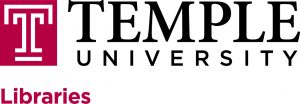Welcome to the fall semester! Whether you are looking for research assistance, to browse or borrow from our collections, or for a place to study, we hope to see you in the Libraries soon. In the meantime, we want to remind you of all the resources and services available to you by checking in with a few of your subject librarians for tips, resources, and advice. Kristina DeVoe, English and Communication Librarian; Rebecca Lloyd, History, Latin American Studies, Spanish & Portuguese Librarian; and Jill Luedke, Art, Art History, Architecture Librarian each offer their perspectives below.
1. What’s the library resource you can’t stop talking about and why?

Kristina DeVoe, photo courtesy Dustin Fenstermacher
Kristina: I’ve been having conversations about citation management tools with graduate students lately. Tools like zotero, RefWorks, and Mendeley are like smartphone contacts list for the sources that have the most influence on your work. Citation management tools help you format sources for a paper and keep track of the most important sources you encounter so that you can “get in touch” with them again later. Some citation management tools are very basic, while others allow for note-taking, file uploads, and have social sharing options.
Rebecca: Global Issues in Context is one of my favorite library resources. This database brings together content from a wide range of sources and media including news, academic journals, videos and podcasts. It’s a great introduction to international issues like the European migrant crisis or food shortages in Venezuela. You can search by topic or country and quickly find background information, historical context, and in-depth articles. It’s an extremely useful source for undergraduate research in the social sciences and humanities.
Jill: Zines! We have a pretty sweet collection of zines (pronounced “zeens”). Zines are diy self-published magazines that have their roots in the 1930s science fiction fandom culture. Zines are still produced today, often by fringe and outsider communities. Recently, Temple Libraries scored a donation of over 300 zines from a local collector. We now have zines that span almost 90 years and cover topics such as LGBTQ, race and identity, feminism, Philadelphia culture, science fiction, and more.
2. What’s one piece of advice about using the Libraries you want to share with students?
Kristina: The Libraries is more than just books. It’s a dynamic, ever-changing space on campus for a whole range of activities from getting one-on-one research help and broadening your skills and knowledge sets in a variety of areas to engaging programs and relaxing from the stress of finals week, plus much more!

Rebecca Lloyd, photo courtesy Dustin Fenstermacher
Rebecca: Librarians can help with far more than finding books! We can work with students on all stages of the research process from choosing and evaluating the feasibility of a topic, to exploring new digital research methods like textual analysis or GIS mapping, to managing your research and citations using tools like Mendeley or RefWorks.
Jill: Remember to breathe. When you’re feeling overwhelmed or stressed or both, take three long deep breaths and slowly sigh them out. This won’t magically compose your thesis statement or make that perfect article appear, but it will definitely put you in a better place than you were three breaths ago. Then, go talk to a librarian.
3. Can you share a favorite interaction with a student or a course you’ve had recently?
Kristina: I had the happy pleasure of working closely with a Diamond Research Scholar last year during the student’s year-long research intensive, hybridized poetic project, serving as a kind of mentor. We met regularly to carve out the scope of the project, identify relevant resources, and discuss available productivity tools to help guide her workflow and creative writing process. The student presented her culminating project at TURF-CreWS and later applied to the Livingstone Undergraduate Research Award, which she won in the Creative Works and Media Production category!
Rebecca: I am working with a class this semester that will be creating and editing Wikipedia pages for an assignment. I’ve had great meetings with the instructor thus far. While this is new territory for both of us, we are very excited that students will get to be active creators of content that can have an impact beyond a typical class research paper. In learning how Wikipedia articles are written and edited, students will also become more savvy and critical users of Wikipedia and other sources. I am eager to partner with instructors on innovative assignments and new approaches to information literacy!

Jill Luedke, photo courtesy Dustin Fenstermacher
Jill: Last year I decided to take my engagement with contemplative pedagogy a step further and reached out to a couple studio instructors to gauge their interest in letting me teach mindfulness to their students. Both instructors agreed to let me teach a series of three 30-minute sessions in their classroom. I talked to the students about mindful and contemplative practices and taught a few basic techniques they could use anywhere, anytime.
4. What’s your favorite part about the beginning of the semester?
Kristina: I enjoy catching up with faculty on their research endeavors and helping them with their course preparation. I also enjoy the energy and excitement surrounding TempleFest.
Rebecca: I always enjoy the buzz of excitement and energy among the incoming students who are eager to think, learn, and be challenged in new ways.
Jill: I still get excited for the first day of school. I can feel the energy amp up as the semester draws nearer. The fresh curiosity of the new students and the cultivated inquisitiveness of the upperclassmen, all of them eager to begin again, bring a palpable vigor to campus.
Remember, you can contact your librarian directly or schedule an appointment. Our AskALibrarian services are also a direct line to research support.





